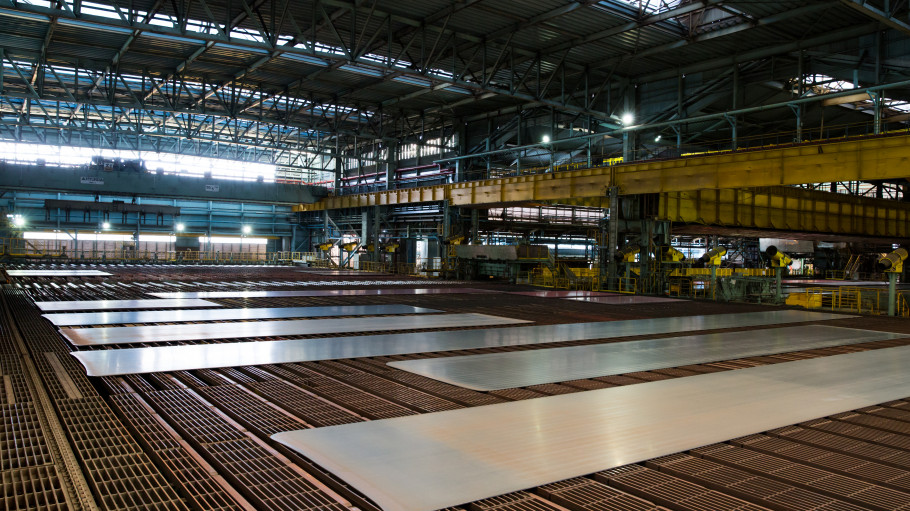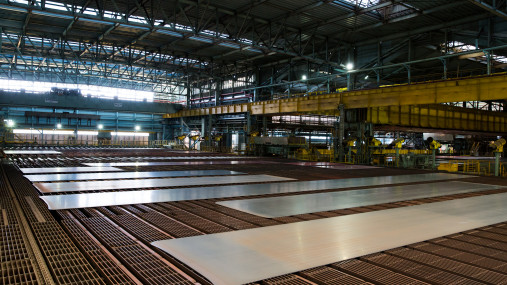
Press releases » EUROFER welcomes OLAF and EPPO joint efforts in uncovering fraud on the steel market
EUROFER welcomes OLAF and EPPO joint efforts in uncovering fraud on the steel market
Downloads and links
Recent updates

Brussels, 7 June 2023 – EUROFER applauds the joint efforts of the European Antifraud Office (OLAF) and of the European Public Prosecutor Office (EPPO) in ensuring the enforcement of trade defence instruments (TDIs). OLAF concluded that an EU importer was avoiding the payment of anti-dumping duties by means of untruthful import declarations. The total amount of financial damage across the EU amounts to 6.5 million EUR with possible additional financial and criminal consequences.
On 6 June, OLAF announced in its Annual Report that an EU importer was found to be making untruthful declarations to import steel products into the EU market.
“The product in question is heavy plates from China which was imported under the wrong code to avoid an average of 73.3% anti-dumping duty” explained Axel Eggert, Director General of the European Steel Association (EUROFER).
“Sources tipped off OLAF about a suspicious consignment of steel on its way to an EU port. Thanks to the cooperation of customs authorities in different Member States, investigations led to the discovery of a series of similar suspected fraudulent activities carried out by the same company across the EU. OLAF concluded that the company was possibly involved in an active conspiracy with the goal of evading taxes for nearly €6.5 million and reported the matter to the EPPO”, clarified OLAF[1].
Before the imposition of anti-dumping duties, China was the main source of imports for heavy plate accounting for 1.3 million tonnes in 2015, almost 50% of total EU imports. While the anti-dumping duties in the range of 65.1% to 73.7% - renewed for another five years in May 2023 - effectively managed to level the playing field with regards to Chinese imports, other countries started exporting to the EU as a result of the massive excess capacity affecting the steel sector. Altogether, South Korea, Indonesia, India, Japan, and Turkey accounted for 1.2 million tonnes in 2022 and increased their exports to the EU by almost 500% compared to 2015.
“It is of utmost importance that these fraudulent practices are investigated and penalised to enforce trade defence measures and achieve a level playing field. EUROFER and its Members have given decisive contribution by providing expertise and evidence. We will keep cooperating with OLAF, the EPPO, and all European institutions to avoid any form of fraud and circumvention of EU law, including TDIs, sanctions and CBAM in the future”, concluded Mr. Eggert.
[1] The EPPO is responsible for investigating, prosecuting and bringing to judgment the perpetrators of, and accomplices to, criminal offences affecting the financial interests of the Union (Art. 22 of Council Regulation (EU) 2017/193). This can include matters related to the payment of anti-dumping and customs duties.
Contact
Lucia Sali, Spokesperson and Head of Communications, +32 2 738 79 35, (l.sali@eurofer.eu)
About the European Steel Association (EUROFER)
EUROFER AISBL is located in Brussels and was founded in 1976. It represents the entirety of steel production in the European Union. EUROFER members are steel companies and national steel federations throughout the EU. The major steel companies and national steel federation of Turkey and the United Kingdom are associate members.
The European Steel Association is recorded in the EU transparency register: 93038071152-83.
About the European steel industry
The European steel industry is a world leader in innovation and environmental sustainability. It has a turnover of around €130 billion and directly employs around 306,000 highly-skilled people, producing on average 152 million tonnes of steel per year. More than 500 steel production sites across 22 EU Member States provide direct and indirect employment to millions more European citizens. Closely integrated with Europe’s manufacturing and construction industries, steel is the backbone for development, growth and employment in Europe.
Steel is the most versatile industrial material in the world. The thousands of different grades and types of steel developed by the industry make the modern world possible. Steel is 100% recyclable and therefore is a fundamental part of the circular economy. As a basic engineering material, steel is also an essential factor in the development and deployment of innovative, CO2-mitigating technologies, improving resource efficiency and fostering sustainable development in Europe.

Download files or visit links related to this content
Industrial Accelerator Act launches lead markets - but more is needed to support green steel “Made in Europe”
Brussels, 26 February 2026 — Europe’s steel industry has warned that the current draft Industrial Accelerator Act could direct public support for low-carbon steel to producers outside the European Union, unless lawmakers include and tighten ‘Made in Europe’ provisions.
Brussels, 24 February 2026 - Europe’s energy-intensive industries have set out a series of proposals to ensure that the EU’s upcoming Electrification Action Plan delivers on its objectives to stimulate and boost electricity consumption in industry. In a joint position paper, industries warn that persistently high electricity prices risk undermining industrial competitiveness and decarbonisation efforts. They call for a policy framework that will enable EU industry in pursuing decarbonisation and industrial competitiveness.